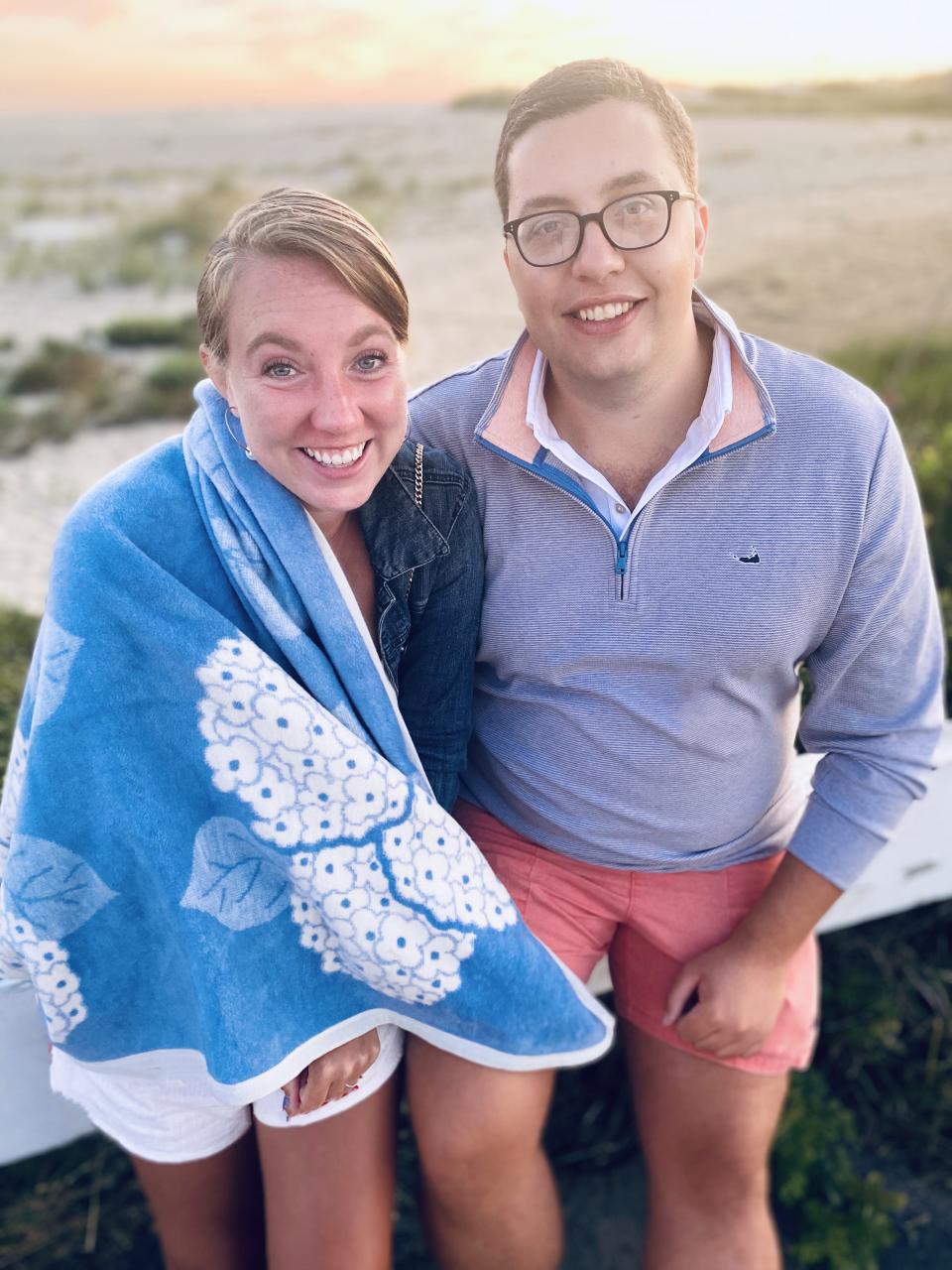Engaged couples are taking 'first' honeymoons on canceled wedding dates
Hailey Murphy and Adam Lemp were supposed to be lounging on a Mexican beach for their two-week honeymoon in August. Because of COVID-19, the pair’s plans shifted to six days in Nantucket, Massachusetts — while they remained unmarried.
“After postponing [the wedding,] the most anxiety that I had in this experience was: What am I going to feel like on that day? I didn't want to be sitting at home,” said Murphy, who moved her wedding date to August 27 of next year from August 15. “We had imagined this whole special day that we were going to get to have together, and so I wanted to replace those memories with something else happy.”
Read more: Here's how the pandemic is changing summer wedding plans
So, Murphy and Lemp participated in the latest trend born out of the pandemic-era. Dubbed a first moon, it’s a shorter, usually domestic, smaller-scale “honeymoon” on or around an original wedding date that’s been rain-checked by COVID-19.

One-third of couples are planning to take a first moon, according to a recent survey by Zola and Travelzoo.
“We've had engagement moons, and mini-moons, but no one ever thought a first moon would be a thing,” said Murphy, who is also the spokesperson for Zola. “Couples are finding joy in that and still looking forward to these big weddings and big celebrations that we will hopefully be able to get back to sooner rather than later.”
‘You've been looking forward to this one day for a year’
The typical honeymoon has evolved into a somewhat lavish affair that affords newlyweds the opportunity to relax and unwind from the stress that comes with hosting a wedding.
In 2019, the average honeymoon spend for American couples was $5,000 on an eight-day trip through Europe. By contrast, first moons are between four and six days and couples are spending between $1,000 and $3,000 —significantly less than the average honeymoon.
But engaged couples in 2020 have felt a particular brand of stress, forced to alter plans, whittle down guest lists, throw backyard weddings, or marry over Zoom due to the evolving pandemic.

It’s been a string of disappointments for affected couples.
“You've been looking forward to this one day for a year—maybe you have it monogrammed on a bunch of things,” Murphy said. “And it's this one day where you're like: ‘After this, we get to go on our honeymoon, we're going to relax, and we don't have to think about planning.’”
Read more: Pandemic etiquette: How to have or attend a Zoom wedding
Except no such luxury is afforded to couples in 2020. Not only is the wedding no longer happening, but social distancing and travel bans make gathering and celebrating with loved ones “really, really stressful,” Murphy said.
Just like weddings are moving outdoors, so are first moons
First moons are following the broad trends of pandemic-era travel with a shift towards closer destinations as well as the outdoors where the requisite six-foot distance between parties can be maintained.
Murphy and her fiance, both based in New York City drove several hours to Nantucket, a destination they both love, and stayed the week in a rented home to avoid daily interactions with hotel staff.
“I'm familiar with the island, so I knew what we could do and that we would basically be outside the whole time,” she said.

Today, 88% of rescheduled honeymoons and first moons are in the U.S., with 55% of couples opting to travel within the same region they live in with the option of driving the overwhelming choice. Nine in 10 couples are participating in outdoor activities, and more than three-quarters are renting a private home, the data found.
Less popular activities include staying in a hotel or staying with friends and family, renting an RV, traveling by plane, and taking a cruise. Only 1 in 8 couples reported they were comfortable traveling overseas.
The future of honeymoons
Whether the first moon is a trend with staying power remains to be seen as sentiment towards wedding and travel likely will change as the pandemic does. As the country recovers from economic uncertainty, it might take time for discretionary spending to rebound to pre-pandemic levels, too.
One new trend that might take hold in the future is the need for flexible travel. 2020 has taught the world why contingency and emergency planning is vital, so booking transferable honeymoons with floating dates and locations might be a necessity.
“No one knows what next year is going to look like,” Murphy said.

The pandemic and its travel restrictions have also shuffled the rankings of honeymoon destinations and brought North American locations into focus. Among the original honeymoon plans for 2020, European destinations led in popularity, followed by the Caribbean, and Hawaii. But now, couples have rebooked their honeymoons for the continental U.S., then Mexico, and Alaska.
But there’s still a contingent of couples who still fantasize about foreign destinations.
“There's definitely still a big group of people who dream of that Bali honeymoon — that super exotic and a once-in-a-lifetime trip,” Murphy said. “For some people, their dream has changed to a U.S.-based honeymoon and that's amazing.”
Stephanie is a reporter for Yahoo Money and Cashay, a new personal finance website. Follow her on Twitter @SJAsymkos.
'I don't want to die by going back to school': Teachers pen wills before returning to classrooms
Coronavirus puppy scams 'seemed legit,' ensnared dog lovers amid pandemic: Illegal Tender podcast
American tourists face bans and restrictions across the world amid shoddy pandemic response
Follow Yahoo Finance on Twitter, Facebook, Instagram, Flipboard, SmartNews, LinkedIn, YouTube, and reddit.

 money
money 

